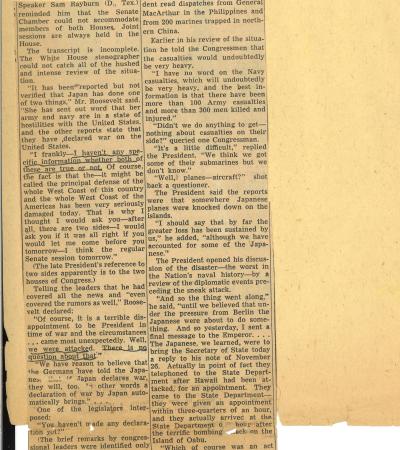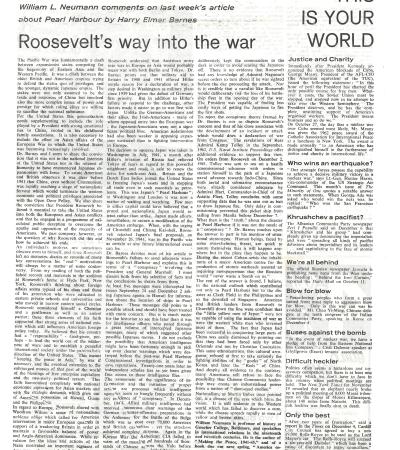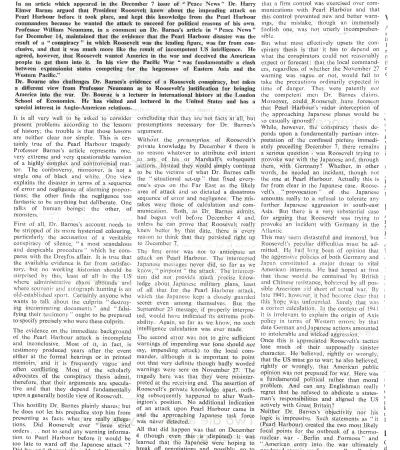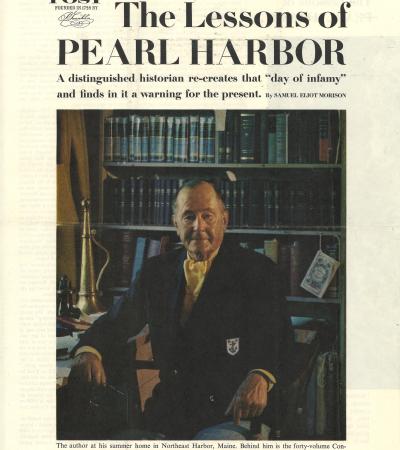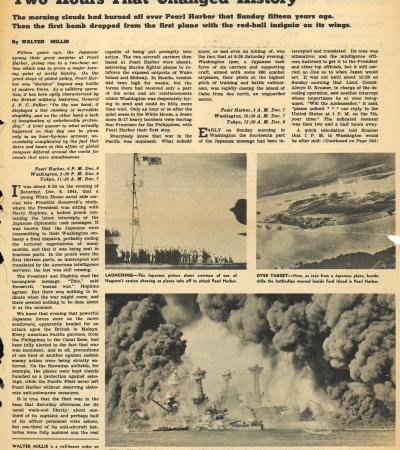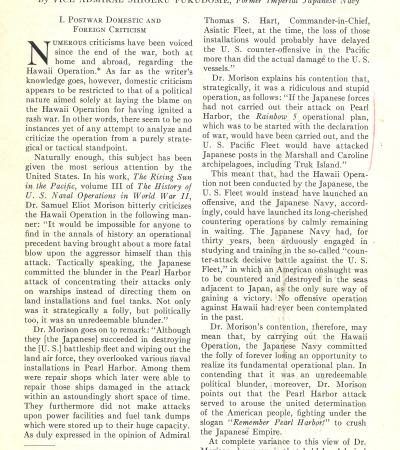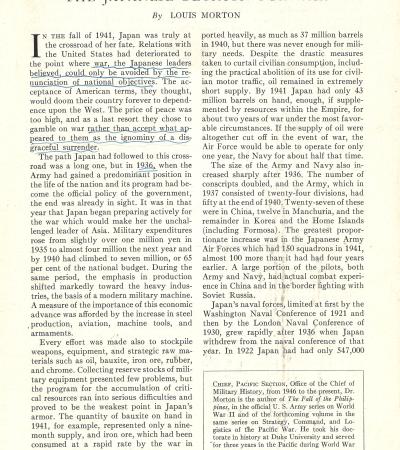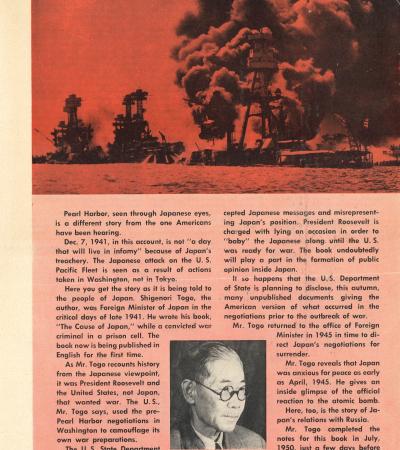William L. Neumann was a professor of history at Goucher College in Maryland beginning in 1954. Neumann was a conscientious objector during World War II and was the editor of "Pacifica Views," a journal published by conscientious objectors interned in work camps. Later he was chairman of the Conference on Peace Research in History. Among his papers are newspaper and magazine articles and correspondence related to Pearl Harbor.
"Notes Reveal U.S. Confusion 9 Hours After Pearl Harbor" by Mary Spargo, April 12, 1946
This article is based on information disclosed by the congressional Pearl Harbor inquiry. It discusses the confusion that reigned in the White House and among congressional leaders in the hours after the attack on Pearl Harbor.
"Roosevelt's Way Into the War" by William L. Neumann, Peace News, December 14, 1962
This article maintains that an attitude of nationalistic superiority led American leaders to be overconfident that Japan would not attack the U.S. prior to Pearl Harbor. Neumann argues against the revisionist perspective that a Roosevelt conspiracy led to Pearl Harbor and instead fixes the blame on bungled handling of military intelligence.
"Roosevelt and the Conspiracy Thesis" by Kenneth Bourne, Peace News, January 11, 1963
This article argues against the revisionist explanation for the attack on Pearl Harbor, but proposes that Roosevelt believed that the U.S. must go to war with Germany and Japan and that he felt that the American people were unprepared for war.
"The Lessons of Pearl Harbor" by Samuel Eliot Morison, The Saturday Evening Post
This article covers events leading up to the attack on Pearl Harbor, the reasons behind the Japanese decision to attack, and the allocation of responsibility for the surprise attack. It emphasizes that the failure was not due to individual incompetence but rather systemic issues in Washington and Pearl Harbor, with a lack of comprehensive intelligence sharing and coordination.
"Two Hours That Changed History" by Walter Millis, The New York Times Magazine, December 2, 1956
The article recounts the Japanese surprise attack on Pearl Harbor which marked a pivotal moment in world history. Despite signs of impending war, such as intercepted Japanese messages and the movement of Japanese forces, the U.S. was caught off guard, leading to significant devastation. The article emphasizes the strategic missteps and the lack of preparedness that contributed to the success of the Japanese attack.
"Hawaii Operation" by Shigeru Fukudome, U.S. Naval Institute Proceedings, December 1955
This article, written by a retired vice admiral of the Imperial Japanese Navy, recounts the attack on Pearl Harbor from the Japanese perspective. It analyzes the attack from a tactical standpoint.
"The Japanese Decision for War" by Louis Morton, U.S. Naval Institute Proceedings, December 1954
The article analyzes the situation in Japan in the lead up to the attack on Pearl Harbor. It notes that in hindsight, Japan's decision to go to war with the U.S. might have seemed like an act of folly. In fact, from the Japanese perspective, the expectation was that the U.S. would be willing to negotiate for peace rather than fight a prolonged war.
"Why Japan Attacked Pearl Harbor" by Shigenori Togo, U.S. News & World Report, August 31, 1956
This article, written by the former wartime foreign minister of Japan, is an excerpt from a book titled The Cause of Japan. It provides a historical perspective on the attack on Pearl Harbor from a Japanese governmental viewpoint.
